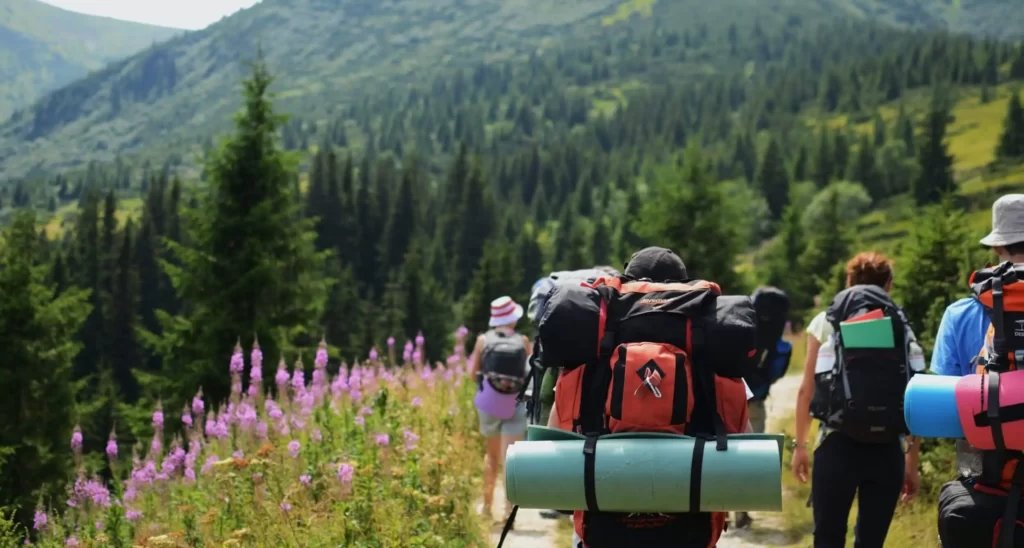
Disclaimer: This page contains affiliate links. As an Amazon Associate, we earn from qualifying purchases. We may receive a commission through purchases made through these links at no cost to you. We only promote products/companies that we love and believe you will too! Please see our Terms & Conditions for more information.
Disclaimer: This page contains affiliate links. As an Amazon Associate, we earn from qualifying purchases. We may receive a commission through purchases made through these links at no cost to you. We only promote products/companies that we love and believe you will too! Please see our Terms & Conditions for more information.
Planning a vacation to the Swiss Alps? Well strap in and keep reading, because we are coming in hot with 15 of our BEST insider tips and valuable info for your trip to Switzerland!
(In no particular order.)
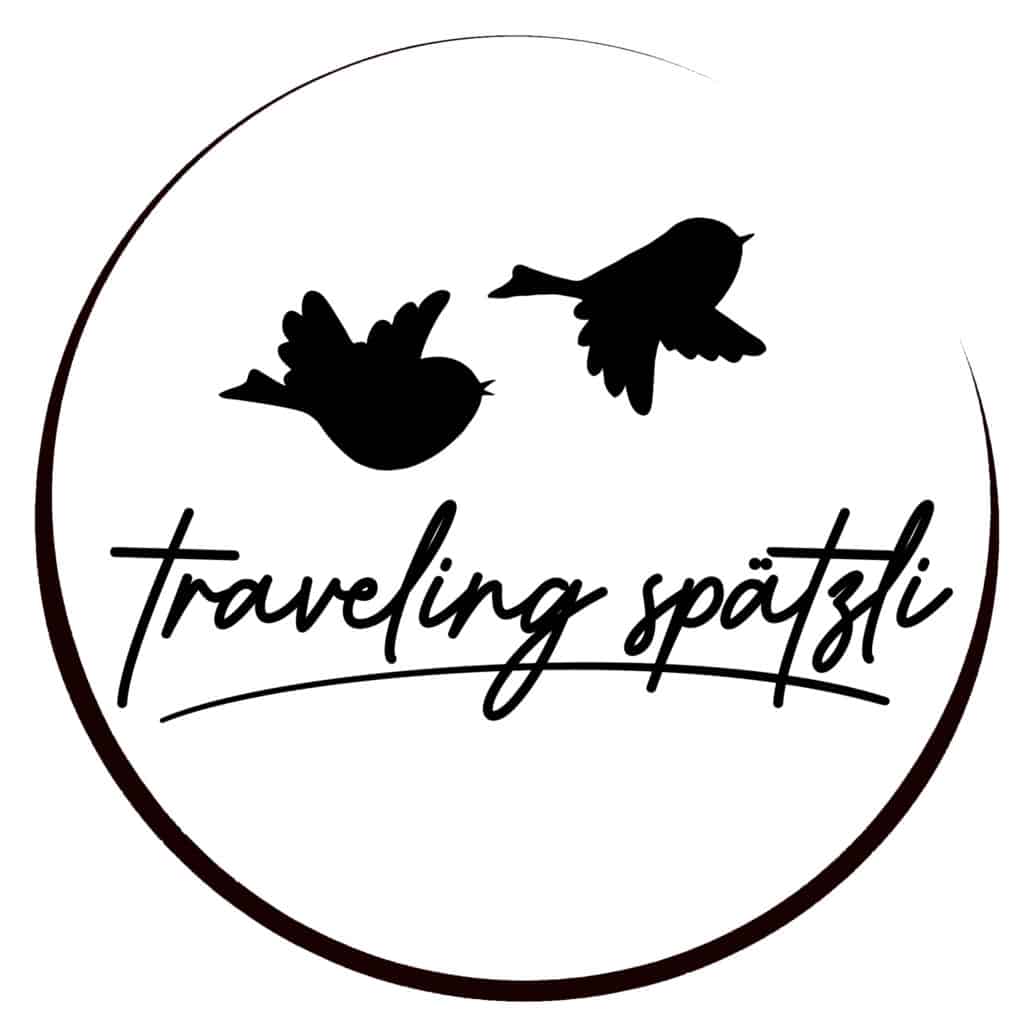
About Us
A Swiss native and a California native who love to travel. Sharing our adventures, knowledge, & travel tips with you!
Follow us on socials!
This may seem obvious, but having traveled to Switzerland in a multitude of ways we can’t stress enough how much of a difference the right flight can make. Not only are layovers a hassle, but the effects of departure / arrival times on jet lag can effect your ability to enjoy your stay right off the bat. (Arrive in the second half of the day!)
The further in advance you can book your flight, the cheaper it will be (usually). Most booking platforms and airlines offer free cancellation policies up to a certain point. As long as you keep an eye on that, there really is no reason to wait.
Depending on where you’re coming from you might not have the option to fly nonstop, but if you do, it’s definitely the way to go. We typically fly out of LAX. The nonstop flight (LX41) operated by Swiss airlines, is by far the best flight to take from LA. If you do book a flight with a layover, try to get one where the layover is not in the U.S., but rather somewhere in Europe (like Paris, for example). This way you will not have to re-check your luggage during your layover on your return to the U.S.
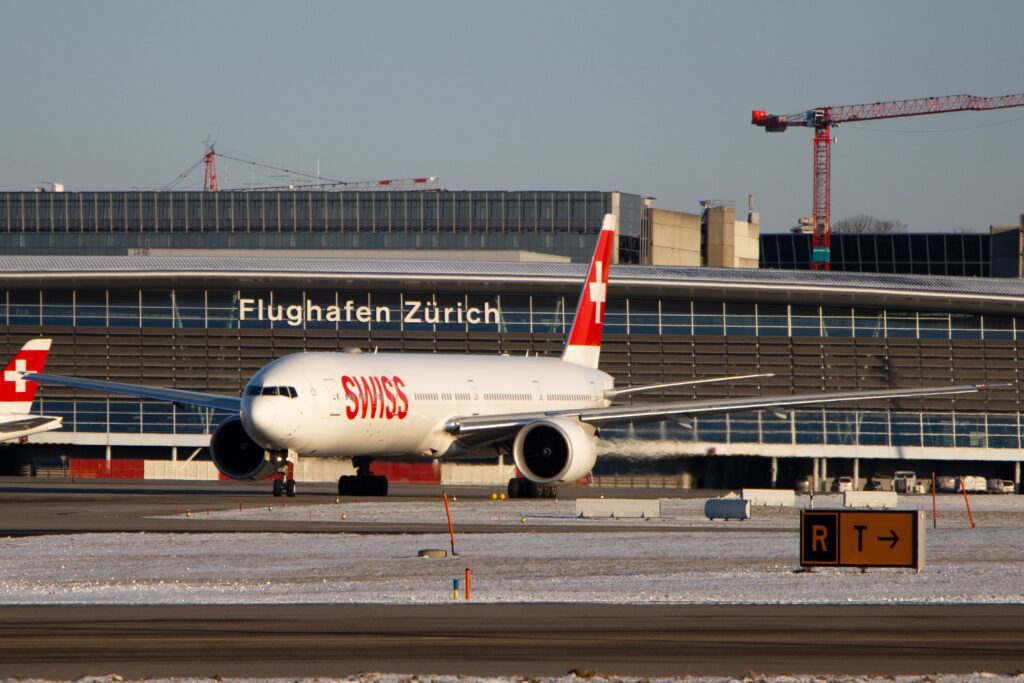
This easily gets overlooked by many travelers, but we both have gotten sick and needed doctor’s visits while traveling and it’s important to note that Switzerland does not have free healthcare. Without local health insurance coverage you’ll be asked to pay cash at the doctor’s visit, so you’ll want to either purchase travel insurance ahead of time or make sure that your health insurance provider covers medical emergencies while abroad and refunds your medical expenses.
Switzerland will rain randomly pretty much year-round. (Which is why it’s so green and beautiful!) Regardless, whether you’re visiting in the summer or winter, a raincoat is a must.
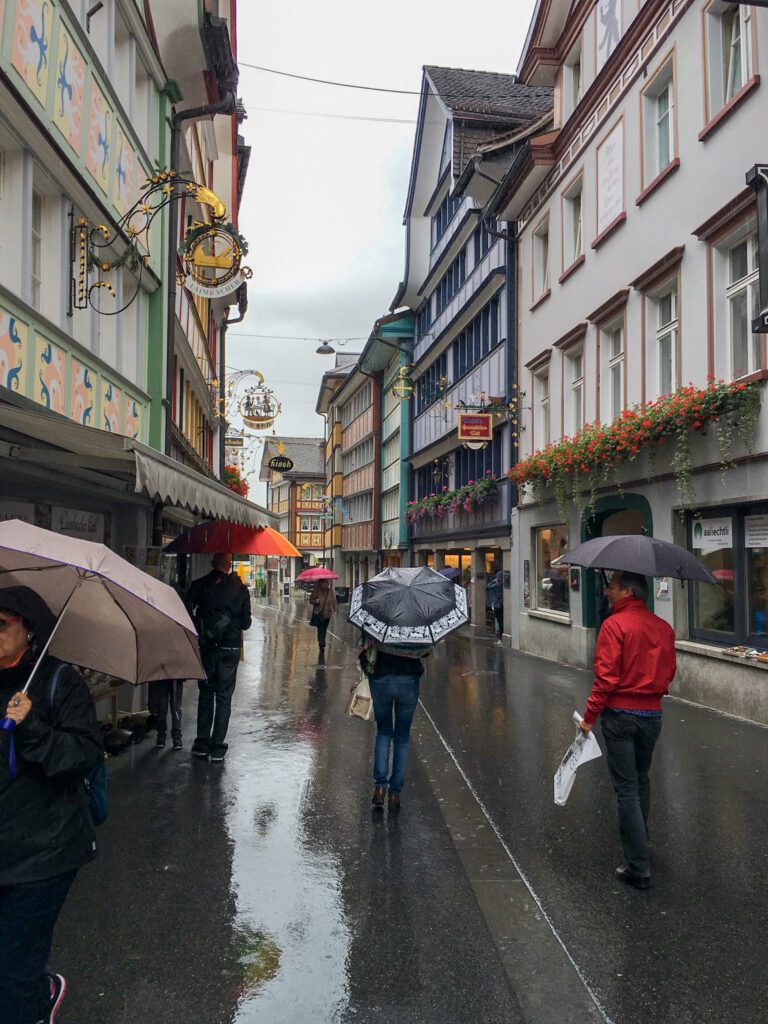
Switzerland has one of the best public transportation systems in the world, but this also means that you need to pack accordingly. You won’t want to lug giant suitcases around and juggle multiple bags while winding down the aisle on a packed train to find a seat. Function trumps form when traveling in Switzerland, so make sure to bring a good backpack for day trips and a sturdy, compact suitcase. On trains you often have to leave your suitcase near the exits – while Switzerland is a safe country you’ll feel better if your suitcase is locked.
As mentioned above, the public transportation system in Switzerland is fantastic. While renting a car can make sense for certain types of trips, most travelers won’t ever have to worry about getting behind the wheel. The train system in Switzerland is operated by SBB (Schweizerische Bundesbahnen) and it connects just about every corner of the country. Wherever the trains can’t get to, the buses will. You can literally reach every city or village using public transportation.

The Swiss railroad network SBB offers a variety of travel passes which provide access to the entire public transportation system, including many city-operated services at a flat rate. Most notably, they offer Saver Day Passes which range in price depending on how far in advance you purchase them. Full fare train tickets can get expensive, so if you know ahead of time that you’re traveling from A to B on a certain day, it often makes sense to purchase the Saver Day Pass (instead of the route-specific ticket) for that particular day and save yourself a good chunk of Swiss francs. For example, a full fare one-way ticket from Zürich HB to Zermatt costs CHF125 (at the time of writing this), whereas a Day Pass could be as low as CHF50.
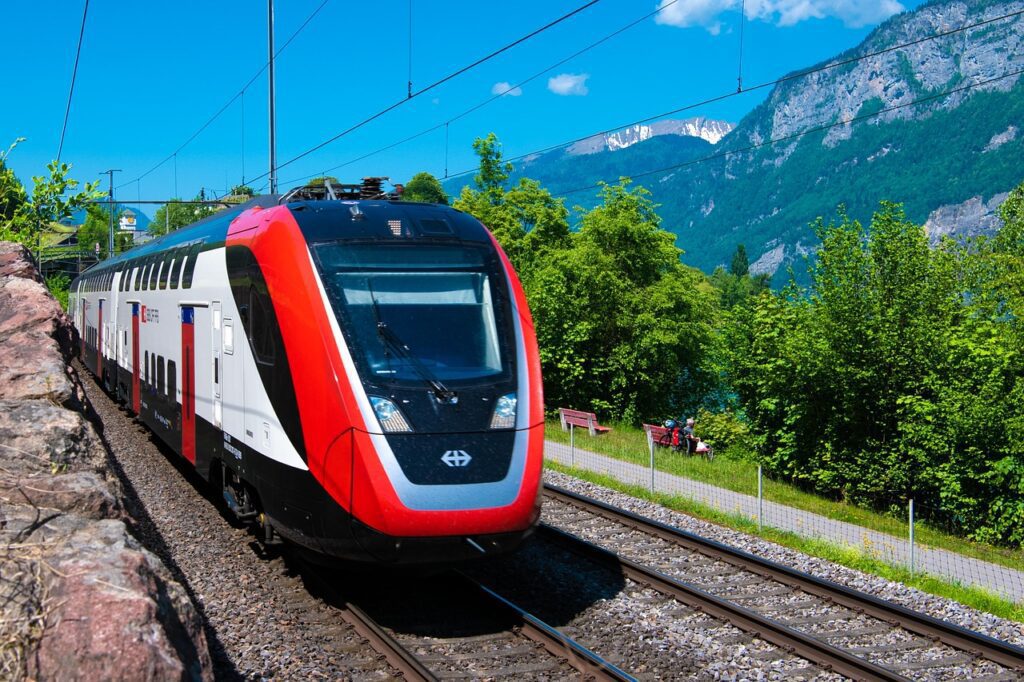
This one is more of a general travel advice, but it’s still a good idea to have a little bit of cash on hand and pay attention to ATM withdrawal and currency conversion fees. Credit cards are accepted mostly everywhere in Switzerland, but you’ll still need some cash when buying from street vendors and certain local stores.
We recommend bringing some emergency cash (max CHF300, don’t overdo it) and, more importantly, making sure that your debit card doesn’t charge foreign transaction and ATM withdrawal fees. Those can rack up quickly if you rely on hitting up the ATM while traveling. When paying using your credit card in stores and restaurants, it’s usually best to process the charge in the local currency and let your bank take care of the conversion. Again, making sure that you use a credit card that doesn’t charge foreign transaction fees. Rule of thumb: Credit cards are for store purchases, debit cards are for ATM withdrawals.
Mosquitoes love Juli. But the feeling is not mutual. If you are traveling during the summer, we recommend bringing some bug spray or buying some in Switzerland.
HOT TIP: Our favorite bug spray is a Swiss mosquito repellent called Antibrumm. It pretty much saved Juli’s life. 10/10 recommend.
However, Antibrumm is only available in Switzerland, so you might want to grab one off Amazon just in case.

If you travel during peak season / holidays, make sure to book hotels, tours and even dinners ahead of time. A lot of destinations in Switzerland are small – mountain villages can be somewhat isolated and get crowded, so if you’re traveling during major holidays, make your restaurant reservations early!
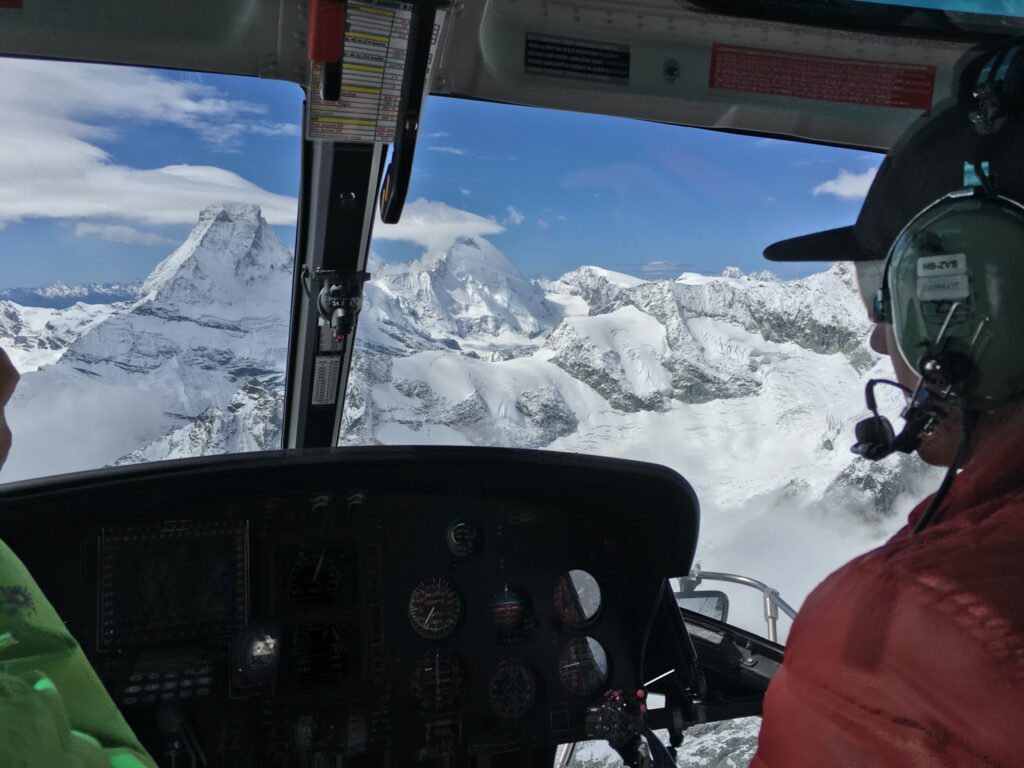
The Swiss love to walk, so hopefully you do too! Whether you’re exploring cities and villages, shopping, or hopping on the train for day trips, you will be on your feet a lot, so make sure you bring comfortable and weather-proof shoes.
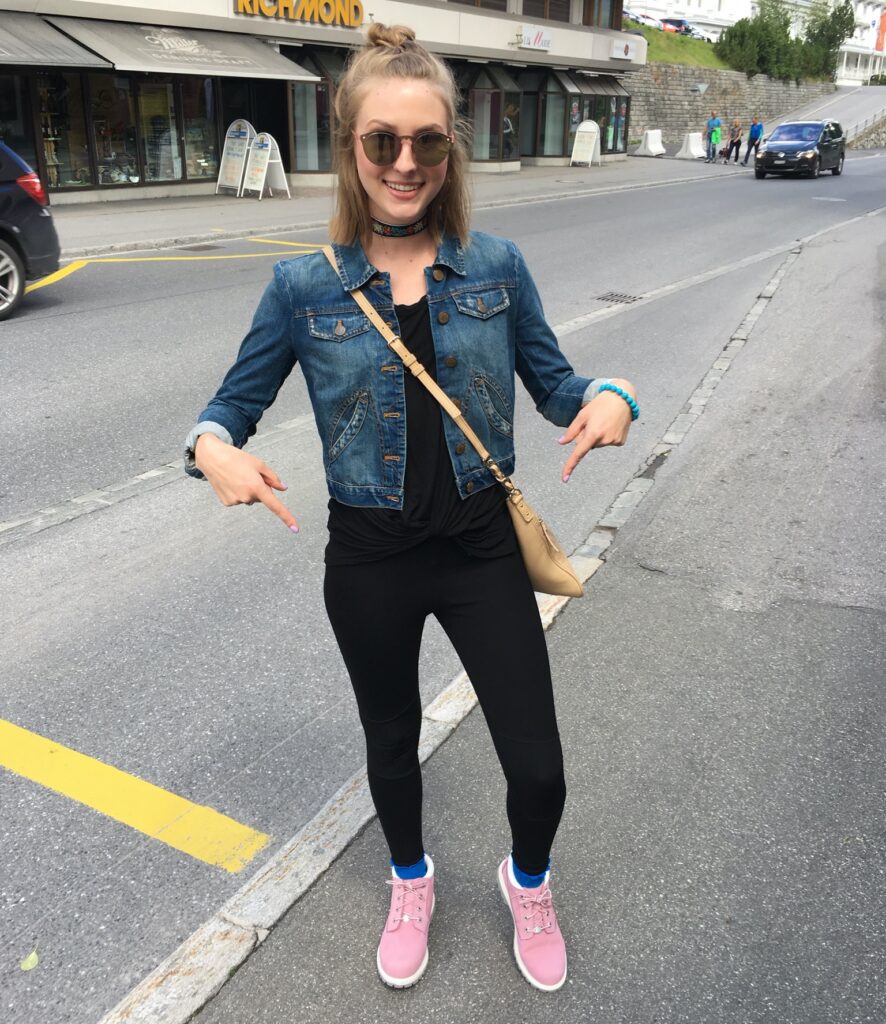
Switzerland has its own standard for electrical outlets which is compatible with other European countries. To get technical real quick: They use the Type C and J plugs, operating on a 230V supply. So make sure to bring an adapter to keep your curling iron from frying those locks of yours.
We have the EPICKA Universal Travel Adaptor and it has worked great for our purposes.
Locals usually tip if the service was exceptional or you had a big party. It is not expected for standard meals or bar visits.
Bottom line – Switzerland is expensive. If possible, try to loosen those purse strings a little so you can fully enjoy what Switzerland has to offer! Also keep in mind that conversion rates fluctuate and the Swiss franc has been pretty strong recently, meaning you’ll get less Swiss francs in exchange for your home currency.
It’s important that you do your research when it comes to where you want to go and the time of year. The best time to travel to Switzerland will depend on the region. For example, if you are interested in going South, to a town near Lake Maggiore, the summer is best, as it will be warm and pleasant and less likely to rain (although it still can!). Whereas in the winter the weather is often better (sunnier) in the mountains, due to the altitude, and you’ll find that locals often ‘escape’ to the mountains when its cold and rainy in the cities.
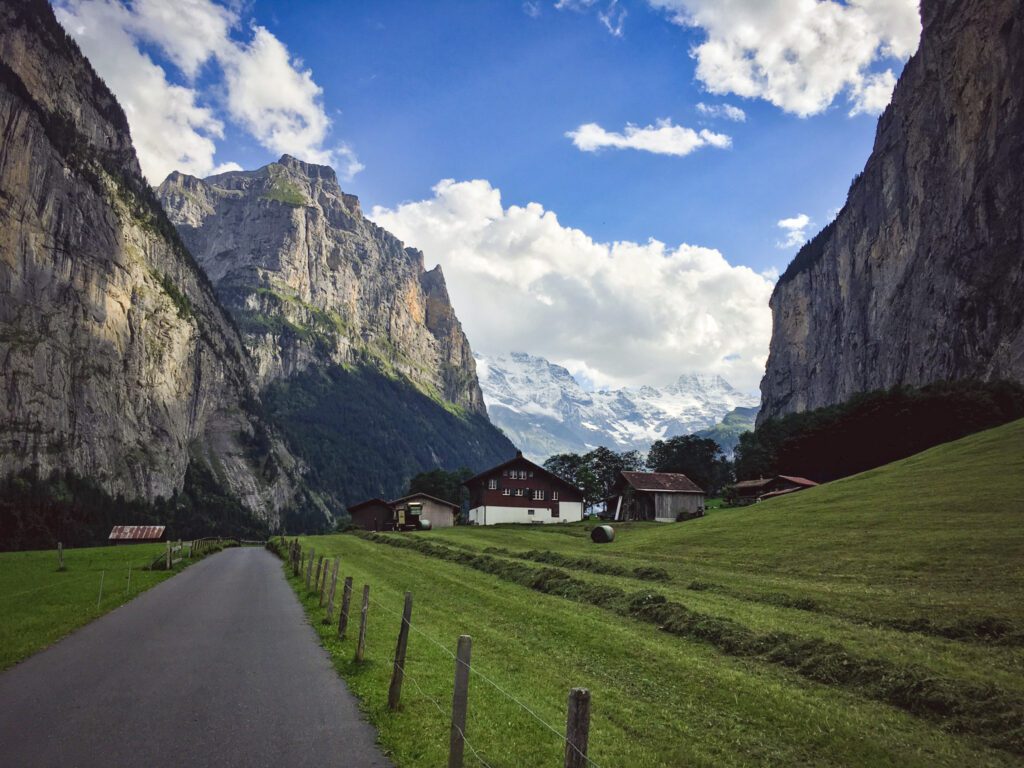
This is one way to save a little money. You can fill that bad boy up with tap water – Switzerland has some of the cleanest, safest tap water in the world! It’s a great alternative to buying a water bottle every time you’re out and about. (Of course, it’s always a good idea to check with your hotel first, but they are 99% likely to tell you that their tap water is safe and delicious!)
We love the Healthy Human Stainless Steel Water Bottle from Amazon!
There you go! After traveling to Switzerland countless times (and Sandro growing up there), these are our top travel tips. We hope you find this helpful and feel free to contact us if you ever have questions. Happy travels!
Sign up for 15% OFF our favorite travel pillow and 2 of our travel itineraries in PDF format!

We are Sandro & Juli! Sandro is a Swiss native and Juli was born and raised in California. We LOVE to travel – especially to Sandro’s home country. We are often asked by friends and acquaintances where to visit in Switzerland, so we decided to dedicate a place where our knowledge of all things Switzerland can live. We are always adding to our travels, so follow along as we share all our best tips, hidden gems, travel guides and everything in-between.
Happy travels!
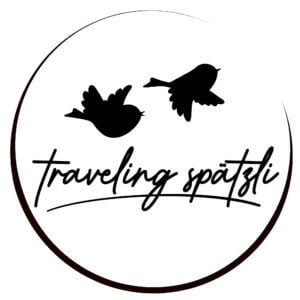
We are Sandro & Juli! Sandro is a Swiss native and Juli was born and raised in California. We LOVE to travel - especially to Sandro's home country. We are often asked by friends and acquaintances where to visit in Switzerland, so we decided to dedicate a place where our knowledge of all things Switzerland can live. We are always adding to our travels, so follow along as we share all our best tips, hidden gems, travel guides and everything in-between.
Happy travels!
Our Gift to You
15% off a Honeydew Scrumptious Travel Pillow!
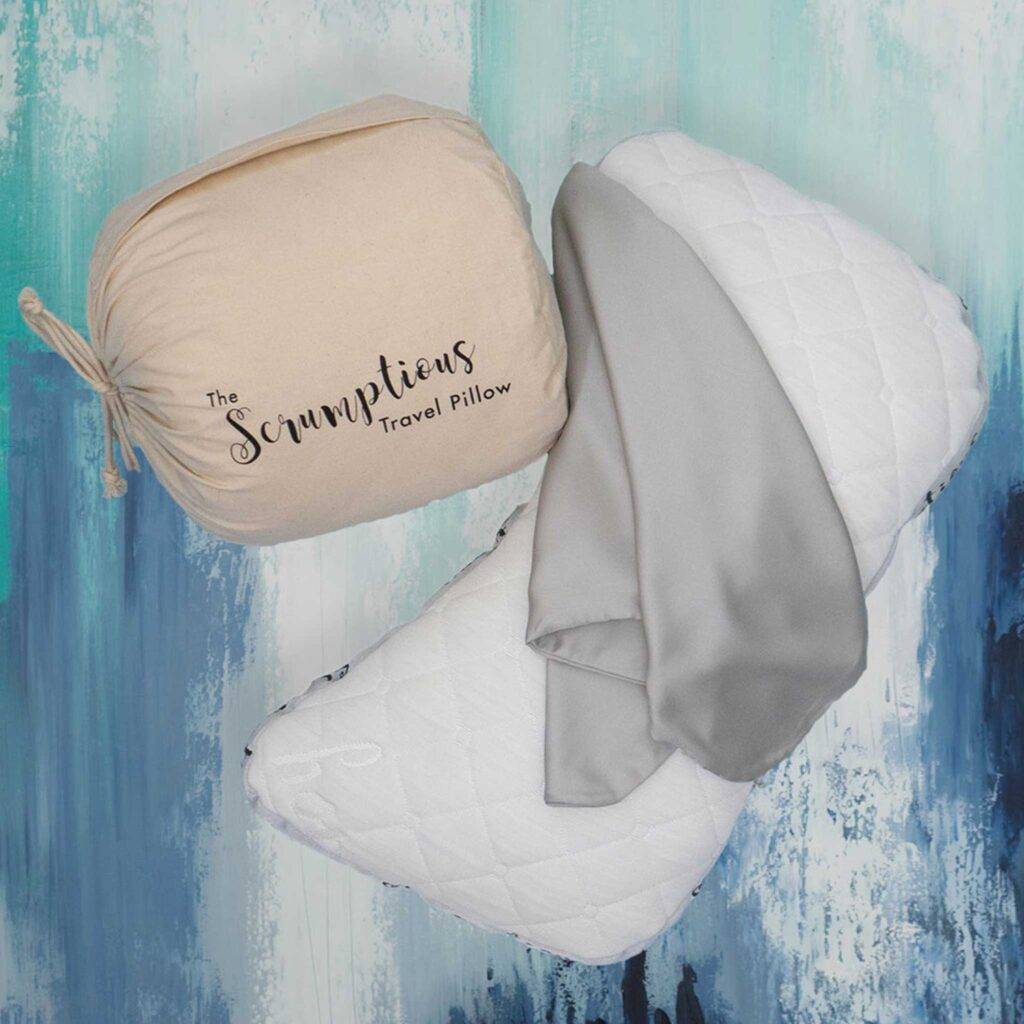
Sign up below to receive a 15% off discount code for our favorite travel pillow and 2 of our travel itineraries in PDF format.
15% off a Honeydew Scrumptious Travel Pillow!
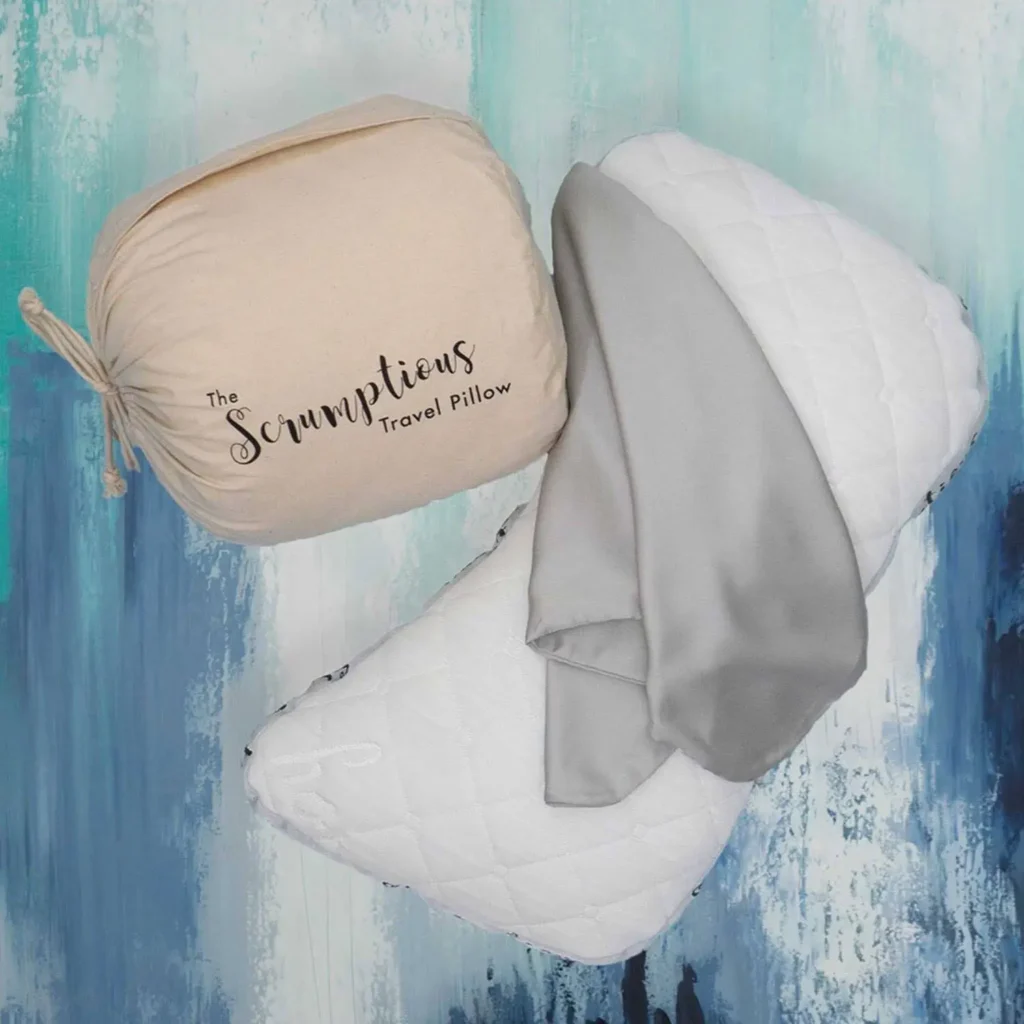
Sign up and receive a 15% off discount code for our favorite travel pillow and two FREE downloadable travel itineraries.